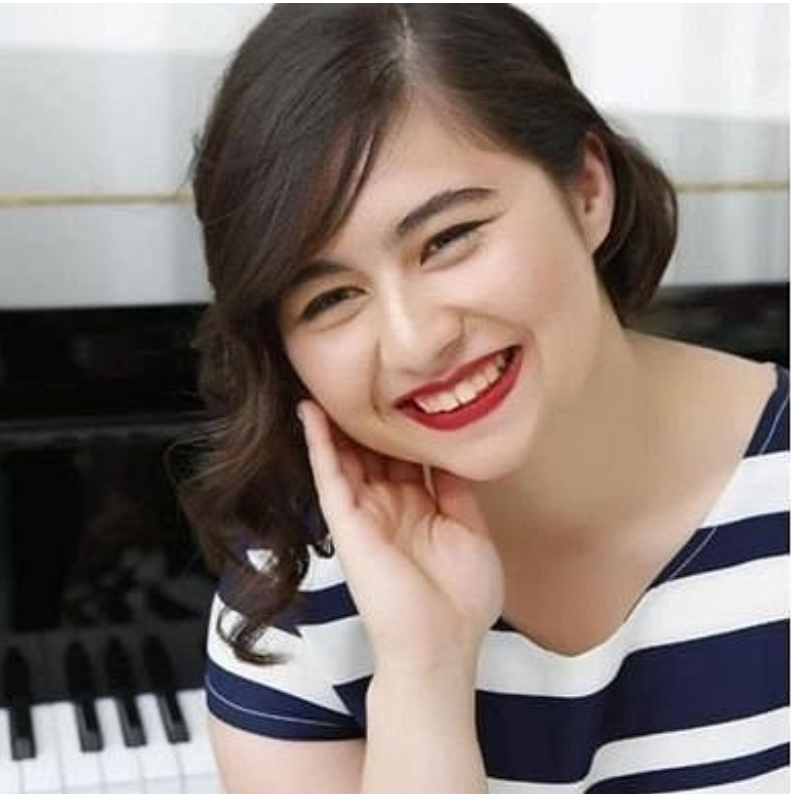
Scroll down for more info …
-
Our slogan 'Same Destination Different Journey' shows our philosophy that everyone can become a successful pianist however will not always follow the same paths. Every one is different and therefore we adapt our methods and teaching for the individual to guaranty success.
Below are examples of annotated scores from students, demonstrating how we adapt and experiment to ensure everyone can succeed
All Students will also have access to our student area (ask during your lesson for the pass-code). There you will have access to many Resources such as DIY board games and activities s to have fun whilst learning for the whole family. As well as information to help you on your musical journey.
-
Young beginners are encouraged to follow the Suzuki method with its unique emphasis on training the ear and the technique introduced from the very beginning. Contrary to popular belief, reading music is an important part of the Suzuki Method. However, just like spoken language, children first develop fluency in playing before learning to read. This gives them a strong foundation and a clear frame of reference, making music reading a natural and effective next step.
Also known as the mother-tongue approach. It was developed in Japan by Shinichi Suzuki in the mid to late twentieth century and is now used all over the world.
One of the most important beliefs of the method is that "every child can". We all learn to speak our mother-tongue language and the foundation of the Suzuki approach is that this remains true with music.
If you would like a head start before your first lesson you can put the Suzuki playlist on in the background during day to day life; in the car for example or whilst playing at home. audio link
Suzuki book 1 ( must have access to CD or recordings - if you do not have a CD player or the link above does not work you can use the YouTube link)
For our older beginners, we tend to use a mix between Suzuki and the fun Dogs & Birds, Piano Safari and or Alfred's Basic Piano Course methods depending on what suits the learning style of the student . all these methods allow teaching reading music and playing piano in a logical and fun way without the restricting emphasis on 'middle C'
-
It is important that the learner from the very beginning gets to experience the full sound, range and feel of a piano; therefore student should have access to an autistic piano or at least an electric piano with no less than 88 keys and appropriately weighted.
For those with upright or grand pianos we recommend tuning at least every year if not every 6th months; Hampstead pianos are in the area and both reliable and affordable.
-
I myself have published, designed and written a practice book this can be purchased in lessons to avoid shipping or from Amazon! click for more information
All Students will also have access to our student area(ask during your lesson for the pass-code). There you will have access to many free resouce and activities for the whole family as well as information to help you on your musical journey.
you will need adjustable chair or a chair where the arm is at 45° to the keyboard when playing
Piano Pedal Extenders are a great addition for our little pupils with growing legs ;) To make the pedals more accessible and to keep a good posture at the piano by having both feet on the ground.
Make Practice Fun with a Metronome! Help your child become a rhythm master while learning piano! A metronome keeps a steady beat, making practice more fun and focused. Here is a link for the brand I would recommend Wittner,
The classic :https://amzn.eu/d/j5U7DB6
Or you can get the cheaper, Wittner piccolo (small) :https://amzn.eu/d/fnRS6T0
We do not recommend putting stickers on the keys. If the student feel they need additional support we would recommend - ‘Dogs and Birds piano tiles’( as shown in the picture below).
Note Rush is an app i myself use as a teacher and one I would highly recommend for students wishing to improve there reading skills
-
We encourage parents to attend the lessons to understand the process and the practice needed. It is also a way of learning music for free for parents!
It helps if a parent or guardian helps support and encourage with their child's regular practice in between lessons regardless of age.
The younger the however student, the more help they need between lessons. Although each family’s availability is different, we offer you all the support needed to be involved and informed as much as you can in your child’s musical journey.
-
Regular performance opportunities are crucial to overall musical development. It is my goal as a teacher to nurture each individual pupil and so I regularly host a winter student concert as well as encourage my students to take part in performances at their schools ,
I do encourage and prepare students for competitive music festivals and ABRSM examinations. However it is key to keep in mind that ‘winning’ is not everything when comes to competing or examinations but more over for performance experience the sense of achievement and as a way to improve progress with goals to work towards.
-
It is never too late to start learning how to play the piano!
Lessons are for everyone you can always take piano lessons for your pleasure and personal benefits.
Weekly tuition is the ideal scenario for every student, but some learners require more flexibility with lesson appointments.
Many people with busy family commitments, benefit from a fortnightly tuition plan. It is the perfect solution for students who wish to learn piano but whose schedule doesn’t allow them to commit to the same time and day every week.










